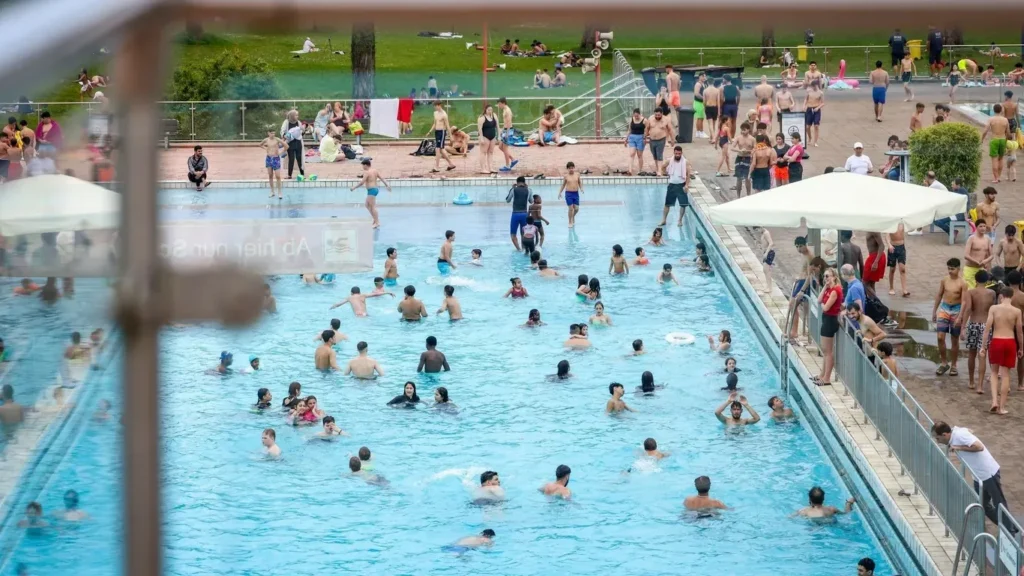Germany is reeling from a worrying rise in sexual assaults in public swimming pools, which has reached alarming proportions recently. In the Hessen region alone, 74 cases of sexual violence were reported in 2024, showing a worrying trend that has been escalating since 2023, according to a study by the State Criminal Police Office (LKA).
In one of the most high-profile incidents, police officers in Hessen arrested four Syrian suspects, aged between 18 and 28, on suspicion of sexually assaulting up to eight girls aged between 11 and 16 at the Barbarossabad public swimming pool in Gelnhausen.
The attacks took place in a single day, sparking strong reactions and questions about the safety of public swimming pools. Hessian Interior Minister Roman Poseck stressed that any official complaint should be treated seriously and demanded a swift and comprehensive investigation into the incidents. “Our swimming pools must not become the scene of sexual assaults,” he told The Sun.
Statistics reveal worrying patterns
An LKA study revealed that in 60 percent of cases, the suspects were not born in Germany. Of the 57 people questioned in connection with these allegations, only two were women, suggesting that the perpetrators are predominantly men. The data show that the number of attacks in swimming pools is on the rise, raising concerns about the safety of visitors, especially children and young girls.
In some German cities, such as Cologne, authorities have started installing warning posters to raise awareness of the problem of sexual harassment in swimming pools. One of the posters shows a man grabbing a woman from behind while she is swimming, with the caption: “Stop it! No groping!” There are dozens of such posters around the city, which shows the seriousness of the situation.

Peter Harzheim, President of the Federal Association of German Swimming Champions (BDS), warned that the lack of trained staff increases the risk by making it more difficult to monitor and intervene in time. “Many people lose control because the sun shines on their brains,” he said, highlighting worrying statistics.
A long-term problem
The issue of sexual harassment in swimming pools is not new. In 2016, the city of Bornheim banned male asylum seekers from entering a public swimming pool after complaints of harassment from women. A local official stated at the time that men would not be allowed entry until they “got the message” that such behaviour would not be tolerated. Despite the rise in incidents, German police are not yet labelling swimming pools as hotspots for sexual crimes, but the increasing number of reports and the seriousness of the cases call for immediate action. Safety in public swimming pools must be made a priority to prevent further escalation of the problem and to ensure a safe environment for all visitors.
A. H.


